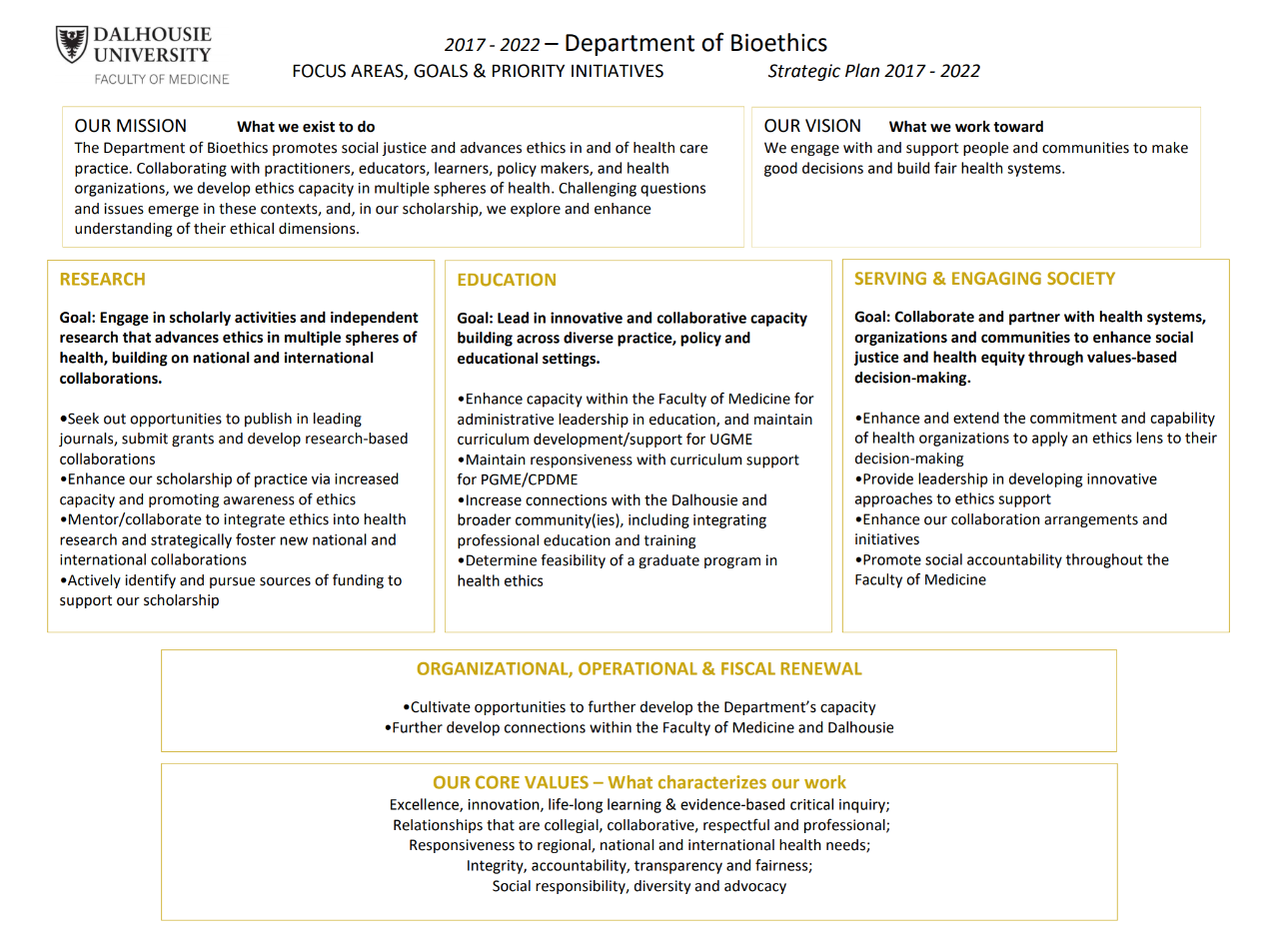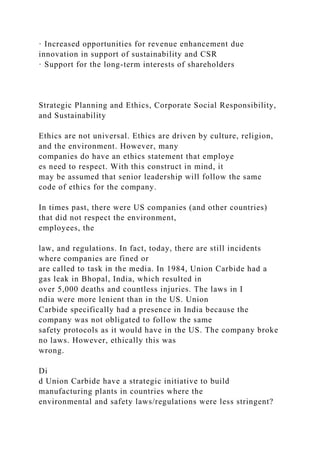Ethics and social responsibility play a crucial role in the development of a strategic plan. A company's ethical values and commitment to social responsibility can greatly impact its reputation and success, as well as the well-being of its employees, customers, and the broader community. Therefore, it is important that these considerations be integrated into the strategic planning process.
One aspect of ethical responsibility in strategic planning is ensuring that the company's actions align with its values and mission. This includes considering the potential impacts of the company's decisions on stakeholders, such as employees, customers, and the community. For example, a company that values sustainability may consider the environmental impact of its business practices and prioritize initiatives that reduce waste and emissions.
Another aspect of ethical responsibility is transparency and honesty in communication. This includes being upfront about the company's goals, plans, and any potential trade-offs or negative impacts. This can help to build trust with stakeholders and avoid any potential conflicts or misunderstandings.
Social responsibility is another important aspect of strategic planning. This involves considering the impact of the company's actions on society and taking steps to be a good corporate citizen. This can include initiatives such as supporting local charities, engaging in environmentally-friendly practices, and promoting diversity and inclusion in the workplace.
Incorporating ethics and social responsibility into the strategic planning process can have numerous benefits for a company. It can improve employee morale and retention, attract customers and investors who value these values, and enhance the company's reputation and standing in the community.
However, it is important to note that ethics and social responsibility can also present challenges and trade-offs in the strategic planning process. For example, a company may face difficult decisions about balancing profits with social responsibility, or weighing the potential benefits of a particular initiative against its potential negative impacts. It is important for companies to carefully consider these trade-offs and make decisions that align with their values and mission.
In conclusion, ethics and social responsibility are crucial considerations in the development of a strategic plan. By integrating these values into the planning process, companies can improve their reputation, attract customers and investors, and be good corporate citizens. However, it is important to carefully weigh any potential trade-offs and make decisions that align with the company's values and mission.








